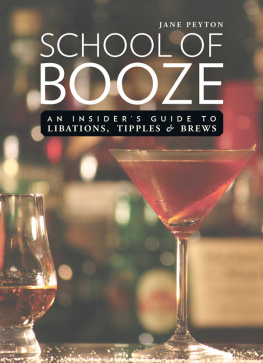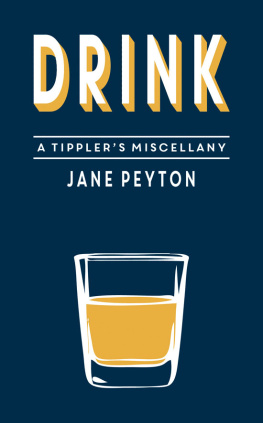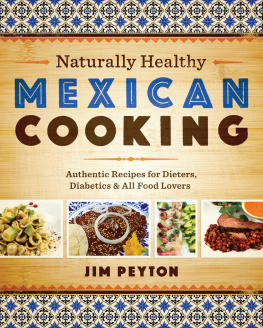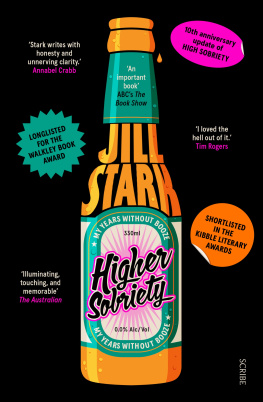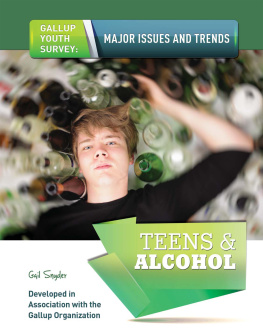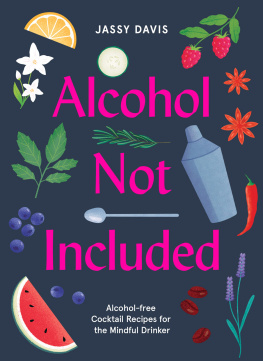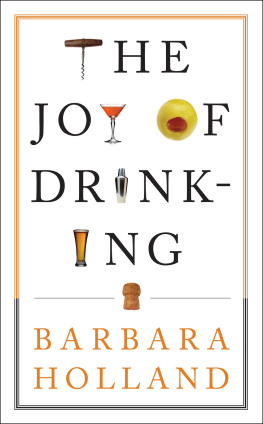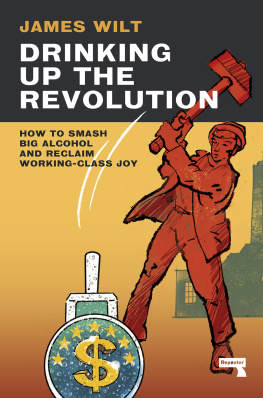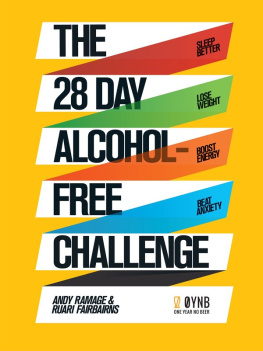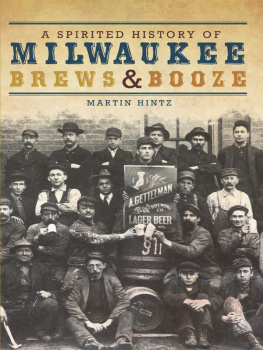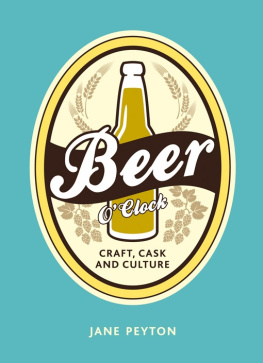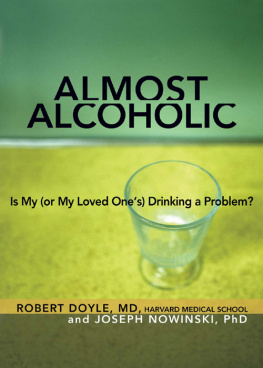PRAISE FOR SCHOOL OF BOOZE
Jane Peyton serves up an intoxicating brew of drinking lore, boozy anecdotes and hop-driven historythis is the sort of school I wish Id gone to.
Adrian Tierney-Jones, beer writer and author of 1001 Beers You Must Taste Before You Die
Whether its the words for hangover in Swedish, the beer-related miracles of Brigit of Kildare, or the three classifications of a drunk in Japan, you'll find it all in here, as beer sommelier Jane Peyton takes us on an enjoyable tour of all things alcoholic. Covering all types of drink, from absinthe through to whisky, one swiftly realises that Jane is as much a lover of words and history as she is of booze. Where else will you find the origins of the phrases fill your boots and scot free within a few pages?
Just like those conversations down the pub, this is a mix of fun, fancy and facts, presented with Janes refreshing charisma and engaging enthusiasm. You are hereby cordially invited to join the principal of the School of Booze for an entertaining jollification.
Cheers!
Susanna Forbes, editor and publisher of DrinkBritain.com
Jane Peytons passion for the subject shines through on every page of this riotous, irreverent journey through the world of drink. Chock full of fascinating drinks trivia too.
Alice Lascelles, columnist, The Times of London , and founding editor of Imbibe magazine
The perfect starter to a great pub conversation. Will launch a thousand sentences that begin with the words, I bet you didnt know...
Pete Brown, author of Man Walks into a Pub and Hops and Glory
ALSO BY THE AUTHOR
Beer OClock: An Insider's Guide to Craft, Cask and Culture
Copyright 2013 by Jane Peyton
Preface to the North American Edition copyright 2015 by Jane Peyton
FIRST NORTH AMERICAN EDITION 2015
FIRST SKYHORSE PUBLISHING EDITION 2015
All rights to any and all materials in copyright owned by the publisher are strictly reserved by the publisher.
Published by arrangement with Summerdale Publishers Ltd.
All rights reserved. No part of this book may be reproduced in any manner without the express written consent of the publisher, except in the case of brief excerpts in critical reviews or articles. All inquiries should be addressed to Skyhorse Publishing, 307 West 36th Street, 11th Floor, New York, NY 10018.
Skyhorse Publishing books may be purchased in bulk at special discounts for sales promotion, corporate gifts, fund-raising, or educational purposes. Special editions can also be created to specifications. For details, contact the Special Sales Department, Skyhorse Publishing, 307 West 36th Street, 11th Floor, New York, NY 10018 or .
Skyhorse and Skyhorse Publishing are registered trademarks of Skyhorse Publishing, Inc., a Delaware corporation.
Visit our website at www.skyhorsepublishing.com.
10 9 8 7 6 5 4 3 2 1
Library of Congress Cataloging-in-Publication Data is available on file.
Cover design by Owen Corrigan
Print ISBN: 978-1-63220-663-3
Ebook ISBN: 978-1-63220-880-4
Printed in China
CONTENTS

PREFACE
TO THE NORTH AMERICAN EDITION
Hello North American readersthank you for buying this book. What are you drinking? Mines a glass of beer.
Having a drink is an activity that bonds billions of people around the world in friendship. In countries where alcohol is legal most of the places where people appear to be having the most fun are licensed to sell intoxicating liquor. In Britain, where I was born and live, going down the pub is the countrys number one leisure activity, and visitors to British shores say that fish and chips and a pint of beer in a traditional British boozer is in the top five things they want to experience during their stay. As well as writing books and running an events company called School of Booze, I also host private tours of historic London pubs. Most clients are American and Canadian and we always have a blast on our pub crawls! As British polymath Dr Samuel Johnson (17091784) wrote so appositely, There is nothing which has yet been contrived by man, by which so much happiness is produced as by a good tavern or inn.
This book was originally commissioned by a publisher in Britain so a number of cultural references and the treatment of some subjects are written from a British point of view.
During my research I was fascinated to learn of the major role that alcohol played in the justification for the American colonies declaring independence from Britain. In British schools we learn of the Boston Tea Party. From what I now know, it should be renamed the Boston Long Island Iced Tea Party. In Canada, hard liquor was currency for fur traders, and during Prohibition much of the decent whisky consumed clandestinely in America came from north of the 49th parallel.
So many significant events in human history are connected with alcohol. If you are a history buff who also likes a snifter or two then this is definitely the book for you!
To your good health.
Jane Peyton
London, UK
INTRODUCTION:
A JOLLIFICATION
Dont tell the social services, but when my siblings and I were children, our parents allowed us to drink a tiny glass of low-alcohol cider with Christmas dinner. It was a once-a-year treat that made the day even more special. We lifted our glass and Dad gave a toast to deceased family members. Then we sipped the sweet sparkling juice knowing that we were participating in a ritual. Even back then I preferred the cider with the pork rather than turkey. A nascent sommelier!
My three wonderful maiden great-aunts used to throw jollifications when the extended family would gather for singing, laughter, and maybe a jig fuelled by something stronger than lemonade. An abiding memory is what fun it all was when people congregated and had a drink. They relaxed, laughed, told jokes, sang, acted daft, and everyone felt the warmth of companionship.
I have always been fascinated by the story behind alcoholhow it is made, the effect it has, the cultural history, and its central role in so many societies. This led me to found an events business called School of Booze. I host tutored beer, cider, wine, whisky tasting events for private groups, appear as a public speaker, and recreate libations from historic eras. My passion is beer and I am an accredited beer sommelier, which if you like beer is one of the most enjoyable things a person can do!
When it comes to the urge for a drink, necessity is the mother of invention. In my experience the greatest example of this is the nomads of Mongolia (and other central Asian countries) who roam around the steppes in search of pasture for their animals. These people would not know what to do with a piece of fruit or a vegetable as they do not stay anywhere long enough to grow anything to eat or supply ingredients to make hooch with. So what do they do when the nearest off-licence may be hundreds of miles away? They drink airag (also known as kumis ) which is made from fermented horses milk.
Horses play a central role in their society and so does airag as an important part of the daily diet. A nineteenth-century book celebrating the nutritional and health qualities of airag referred to it as milk champagne. In Mongolia airag is also distilled into a clear spirit called shimiin arkhi . At around 12 per cent ABV it has a bigger kick than its low alcohol sibling. Fermentation is easy to achieve when airborne yeast cells land on the milk and ferment the sugars, but milking the mare is a little trickier. A foal suckles its mothers teat to start the milk flow and then a milkmaid moves in with a bucket, wraps an arm around the mares hind leg and starts milking. I can vouch for the fact that airag tastes similar to yoghurt with a sour flavour and slight tingle on the tongue because I spent some time in Mongolia. My hosts offered me a drink and, well, it would be rude not to. They passed a bowl, the size of a heavyweight boxers fist, full of a pale thin liquid. With all eyes on me I accepted it and smiled as I tucked in, trying to avoid the horse hairs floating around on the top, and finished the entire serving. Little did I know that in Mongolia if you eat and drink everything served up, it means you want more.
Next page
